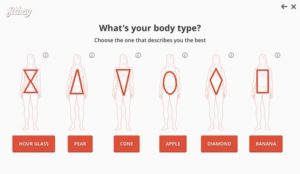The Scandis are coming – here’s what they can teach you
12 June 2015
Hallvard Barbogen, Content Manager
Nordic start-ups are now making their mark on London. Norway has even opened an innovation embassy in Old Street to help Norwegians get to Silicon Roundabout and beyond.
It’s the greatest Scandinavian invasion of the British Isles in about a thousand years – but this time around the invaders bring innovation.
Ad tech, ed tech and the sharing economy are some of the keywords for the exciting start-ups using London as a springboard to go international. Other start-ups looking for new markets can learn a lot from the Scandis. Here are a few companies that have found a niche and caught our eye.
- Atavistic ad tech

Oslo- and London-based Unacast is at the forefront of beacon technology, which could give ad targeting unparalleled levels of accuracy. Beacons are devices that identify and communicate with individual shoppers through their smartphones.
By tracking shoppers’ behaviour in physical stores using these, Unacast lets retailers interact with customers by alerting them to relevant offers. The technology means advertisers will have to be even more alert to privacy concern than before. But beacons have been a smash hit at SXSW this year and can work particularly well with loyal users who are willing to share personal data.
Only founded last year, Unacast is now looking to break the UK and US markets – both of which are predicted to embrace beacons in 2015.
Danish AllUnite offers another twist for making stores more connected. Its wi-fi system allows store-owners to give their customers free internet sprinkled with specialised store advertising.
It’s a win-win situation. The shopper can use the wi-fi to connect socially and get their friends’ opinion on their pending purchase, and the retailer can offset their investment in free wi-fi by offering advertising to brand partners. It’s also perfect for big city cafes that are tired of people just buying one cup of coffee and then using the internet for hours.
A year older than Unacast, AllUnite is already selling its special wi-fi boxes in over 40 countries. Both of these ad tech juniors are breaking down the barrier between online and offline, which could be a key tactic for retailers in the coming year.
- Enriching ed tech
Ed tech has become a bit of a Norwegian speciality and Kahoot is leading the way. The three year old company lets teachers and pupils create educational quizzes they can play together in a classroom.
Two years ago it was one of the finalists in the SXSW ed tech competition. Since then, it has only gone upwards. Last month it reached a landmark 25 million users – with 60% of growth happening in the US.
Musit is another exciting Norwegian ed tech company. With apps and programmes that teach kids and adults about music, the start-up combines in-depth learning with games. Its Music Delta programme has been live since 2005 with a steady international following, and more apps will hit the market soon.
The special thing about both these start-ups is that they’ve managed to bring games into the classroom. They’ve disrupted the education industry by embracing Eric Zimmerman’s call for a Ludic Century, where games are central to all we do.
Brands already began tapping into ‘gamification’ years ago by making their loyalty schemes more fun, competitive, addictive, and ultimately, effective. Start-ups are showing how gamification can be harnessed outside the marketing industry.
- Shaking up and sharing
Airtame is another of our favourites. It comes from Denmark and has made a big success out of crowdfunding with over $1,5m raised from over 14,000 backers on Indiegogo.
Airtame is based on a small, wireless dongle that lets users share content between all their devices and screens. It’s a brilliant idea for anyone who, like me, doesn’t have a TV anymore. Hoping to hit the market fully in the second quarter of this year, these Danes could be looking at a bright future – especially seeing how successful the anti-TV trend is becoming with the likes of Netflix and Amazon now ruling the entertainment roost.
Another Danish start-up showing innovative thinking is Fitbay, a social community that lets people connect with their “body doubles” to find clothes that fit them perfectly. With clothes being the most popular product bought online in the UK last year, these guys could be onto something.  The aim is that by matching people with similar body types, they will inspire each other to try new styles and unearth new items to buy.
The aim is that by matching people with similar body types, they will inspire each other to try new styles and unearth new items to buy.
They also aim to expose vanity sizing, i.e. brands manipulating sizing to appeal to customers’ egos. Since the app’s launch last year it has collected 150,000 brand sizes from its 100,000 users to find out which ones inflate their sizes.
Other promising sharing economy start-ups include Owegoo’s activity-based travelling, Sharingear’s equipment-share for bands on tour, and FlexiDrive’s car-sharing. For the sharing economy start-ups, it’s all about being inventive.
If you’re intrigued by this selection of Scandi start-ups, here’s a longer list from Business Insider that tells you all you need to know about the big and small companies currently coming down from the North. And if you’ve discovered any exciting Nordic start-ups that we haven’t mentioned, please let us know! Or maybe you think another region has even more innovative thinking?


 Previous post
Previous post
